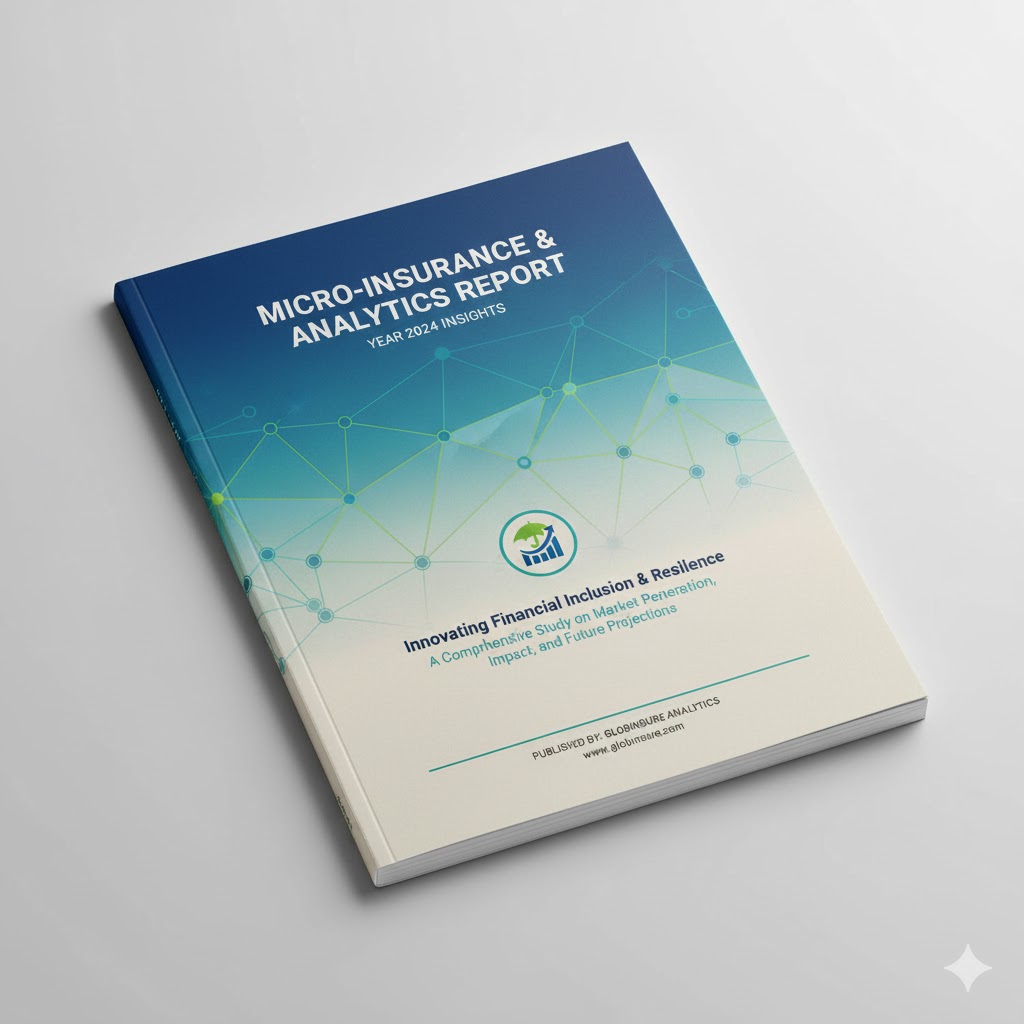Displaying 16 - 30 of 30

Insurance Automation by Lead Foundation in Egypt
Insurance automation initiative led by Lead Foundation in Egypt, exploring how digital systems can enhance access to inclusive life insurance. The case outlines the broader poverty and economic context, key capacity-building interventions, implementation strategy, and an honest reflection on both the successes and challenges faced. It also discusses project outcomes and lessons learned, offering a blueprint for tech-enabled insurance in underserved regions.
Fecha de emisión
2019
Temas
Asunto (Producto)
Región

Lead Family Insurance by Lead Foundation in Egypt
Insurance Automation by Lead Foundation in Egypt. This case outlines the economic and poverty context in which the intervention took place, including the project's approach to capacity building and automation. It highlights both the results achieved and not achieved, and captures key lessons learnt in delivering health and credit life insurance to underserved populations.
Fecha de emisión
2020
Temas
Asunto (Producto)
Región

Making climate risk microinsurance work. Case Study: Green Delta Insurance Company (GDIC), Bangladesh
Making climate risk microinsurance work: Green Delta Insurance Company in Bangladesh. This case study explores the origin, design, and delivery of Green Delta's agricultural microinsurance program. It reviews pricing mechanisms, subsidy structures, operational challenges, delivery models, and real-world performance results. The analysis offers key lessons for building climate resilience through private-public partnerships in emerging markets.
Fecha de emisión
2022
Temas
Asunto (Producto)
Región

Making climate risk microinsurance work. Case Study: Kenya Agriculture Insurance Program (KAIP) with APA, Kenya
Information on the Kenya Agriculture Insurance Program developed in partnership with APA Insurance. The overview includes pricing structures, government subsidy mechanisms, challenges in implementation, delivery models, and overall performance metrics. The case outlines key lessons learned from executing a national climate risk microinsurance scheme in a Sub-Saharan African context and provides insight into scaling agricultural resilience through public-private collaboration.
Fecha de emisión
2021
Temas
Asunto (Producto)
Región

Making Climate Risk Microinsurance Work. Case Study: MiCRO & Aseguradora Rural (AR), Guatemala
Partnership between MiCRO and Aseguradora Rural to deliver parametric climate microinsurance to smallholder farmers and microentrepreneurs in Guatemala through bundled loans.
Fecha de emisión
2022
Temas
Asunto (Producto)

Making climate risk microinsurance work. Case Study: Philippine Crop Insurance Corporation (PCIC), Philippines
Case study of the Philippine Crop Insurance Corporation (PCIC) and its role in climate risk microinsurance. This diagnostic overview outlines PCIC's origin, goals, and subsidy model, and examines the challenges and performance of its delivery system. The paper also highlights pricing strategies, key operational hurdles, and practical lessons learned — contributing to a broader understanding of how public sector agricultural insurance can support resilience in Asia.
Fecha de emisión
2021
Temas
Asunto (Producto)
Región

Making Microinsurance Work, Scale2Save Learning Paper
Making Microinsurance Work: This learning paper by Scale2Save explores the challenges affecting the uptake of microinsurance across emerging markets. Drawing from real-world case studies in Côte d'Ivoire and Nigeria, it identifies key barriers and presents practical strategies to boost adoption. The report highlights innovative distribution approaches, customer education tactics, and partnership frameworks that drive scale and sustainability for inclusive insurance services.
Fecha de emisión
2021
Temas
Asunto (Producto)
Región

MiCRO / SBS / Bancamía – Boosting Resilience for Microentrepreneurs
In 2019, MiCRO and SBS Seguros, in partnership with Bancamía, launched "My Protected Investment", a microinsurance product for SMEs that combines index-based and traditional coverage. Three years after Colombia's first parametric insurance launch, the initiative had already reached almost 120,000 low-income beneficiaries, providing protection against hazards such as excess rain, drought, and earthquakes, while expanding access to underserved urban and rural clients.
Fecha de emisión
2023
Temas
Asunto (Producto)

Nepal: Introducing index-based insurance for flood-prone communities
Practical Action developed a flood index insurance for Western Nepal smallholder farmers. Features bundled services, cooperative-based sales, and payouts for crop loss after severe floods.
Fecha de emisión
2022
Temas
Asunto (Producto)
Región

Pioneer Microinsurance: Building a Business around Positive Customer Experience Pays Off
Pioneer Microinsurance in the Philippines built a strong customer-centric culture by leveraging client data and insights and embedding customer-focused behaviors across the organization. This approach improved the customer experience, strengthened client value, and drove significant business growth, including higher policy renewals and expanded outreach.
Fecha de emisión
2018
Temas
Asunto (Producto)
Región

Social Finance Brief: Pacífico Seguros
Social Finance Brief on Pacífico Seguros in Peru, outlining their experience in delivering non-life (property) insurance solutions. The brief explores product innovation, operational models, and lessons learned through collaboration with ILO Impact Insurance and MiM, focused on strengthening financial resilience through non-agricultural property coverage.
Fecha de emisión
2022
Temas
Asunto (Producto)

The Growth of Inclusive Insurance in Zambia
Details how Zambia created an inclusive insurance ecosystem through coordinated efforts and industry-wide stakeholder engagement. Zambia's Technical Advisory Group (TAG) led a structured process to align stakeholders, catalyze innovation, and grow the microinsurance market.
Fecha de emisión
2016
Temas
Asunto (Producto)
Región

WFP Nicaragua – Insurance and Social Protection: A Key Tool to Increase Resilience and Food Security in Nicaragua
WFP Nicaragua implemented a risk-layered insurance approach through the R4 Rural Resilience Initiative and sovereign CCRIF coverage.
Fecha de emisión
2023
Temas
Asunto (Producto)

WFP Southern Africa
WFP's R4 initiative insures 8,000+ households in Zimbabwe and Mozambique against drought, floods, and cyclones using area-yield and weather index insurance, in partnership with local insurers.
Fecha de emisión
2021
Temas
Asunto (Producto)
Región

World Food Programme's Sahel Climate Catastrophe Layer
The document describes the Sahel Climate Catastrophe Layer (SCCL) by the World Food Programme (WFP), a parametric insurance covering vulnerable populations against extreme droughts in Burkina Faso, Mali, and Niger. The initiative enables rapid, pre-financed disaster response, complements national risk financing tools, and strengthens regional climate resilience.
Fecha de emisión
2025
Temas
Asunto (Producto)
Región
